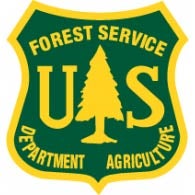DFPG
Over the past decade we have used quantitative trait locus (QTL) mapping to dissect adaptive and economic traits in Douglas-fir, loblolly pine and poplar. Though highly informative, these studies do not reveal which genes are responsible for controlling traits of interest.
In this study we propose to use a population genomic approach called association mapping to identify the specific genes (i.e. loci and alleles) that are responsible for phenotypic differences in adaptive traits of Douglas-fir.
Conifers are excellent model plants for dissecting complex traits using association genetics; they are evolutionarily old, are distributed in large, out-crossed, natural populations with high gene flow, and they have little population substructure. Already, our labs have demonstrated the viability of association genetics techniques in loblolly pine, identifying >300 SNPs in >100 candidate genes and performing more than 450,000 SNP genotypes in two large, association populations. Specific alleles of potential economic significance have been found. Douglas-fir, which grows over vast, environmentally heterogeneous areas of the West, is ideally suited for study of adaptive traits; much is already known of these traits through genecological, quantitative genetic and QTL studies.
We propose to conduct association detection and verification tests for growth rhythm (bud flush, bud set) and cold hardiness in a large (>1000 parent trees) common-garden trial with well-characterized, pre-existing phenotypes.
Our research emphasis will be:
- Testing for population structure
- Enhancing our existing Douglas-fir EST database (>11,000) by creating 5 treatment-induced libraries (2.5K ESTs each)
- Enhancing our existing candidate gene list (>100) by conducting expression array studies
- Mapping 60 select candidates to QTL/genetic maps
- Performing SNP discovery (4-8 SNPs/gene) in 30 top candidate genes
- Performing 240,000 SNP genotypes (using fluorescence polarization)
- Conducting association tests.
In addition to dramatically improving our understanding of the genetic control of adaptive traits, development of technologies for the discovery of economically and ecologically important alleles in Douglas-fir could reduce tree breeding costs, accelerate tree breeding progress, guide gene conservation efforts, and enhance our ability to cope with climate change.
Participating Organizations
![]()

